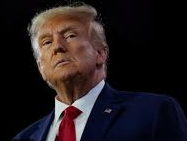By Cindy NORTEY
A super-power state has plunged the world economy into pandemonium.
This was done by a trade policy which clearly showcases the interdependence of world markets and emphasises the importance of international trade as a necessary pathway for economic development.
With ongoing consultations among trade experts and other relevant stakeholders on retaliatory and other adjustments to tariff policies worldwide, I can’t help but appreciate this opportunity for the Ghanaian economy to gently push beyond familiarity.
Perhaps it is about time to reevaluate our trade policies as well as partners and actually implement the many outcomes of past national discourses on trade.
According to the World Bank, Ghana’s largest trade partners include, China, India, South Africa, United Kingdom, United States of America, Netherlands, Canada and Switzerland for both imports and exports. Ghana’s top export commodities are gold, cocoa beans and crude oil. Ghana’s top imports however cut across automobiles, petroleum oils and many finished goods.
The status of Ghana’s industrialisation is reflected in the product categories of its exports. The World Bank reports that in 2022, the product share of Ghana’s exports constituted 43.36% of raw materials, 48.42% of intermediate goods, 7.45% of consumer goods and 0.78% of capital goods.
Origin of imports into Ghana, however, were from highly industrialised countries such as China, United States, United Kingdom and India. This explains Ghana’s choice of trade partners as well as the previous status of Ghana’s Balance of Payments.
Nonetheless, in recent years Ghana has recorded surpluses in its Balance of Payment – which though an improvement remains unimpressive, as it has been accompanied by insignificant improvements in the economy’s overall development.
The United States has unapologetically slapped a 10% tariff on Ghanaian exports to the USA in a grand scheme to revive its economy.
Ghana’s trade summary as published by the Office of the United States Trade Representative shows that in 2024, U.S. total goods trade with Ghana was US$2.1billion and U.S. goods exports to Ghana in 2024 was US$967.3million – up 12.3% (US$106.3million) from 2023 – but U.S. goods imports from Ghana in 2024 was US$1.2billion, down 28.0% (US$455.2million) from 2023.
The statistics imply that unless Ghana has competitive advantage in its exports to the US, the economy will be adversely affected by the increase in tariff and evident suspension of the African Growth and Opportunities Act (AGOA).
While Ghana’s government pursues diplomacy in urging the US to reconsider its 10% tariff imposition, it is noteworthy that in 2023, countries which imported more from Ghana than United States were Burkina Faso (US$574M), Mali (US$165M) and Uganda (US$237M), as stated by the Observatory of Economic Complexity (OEC).
This is an indication of the Africa Continental Free Trade Area’s (AfCFTA) importance in championing international trade relations among African Nations. I would recommend that the government of Ghana invests in the Africa Continental Free Trade Area (AfCFTA), which would offer a much larger unrestricted market and improve trade beyond the borders of Ghana.
Investments in access to information on AfCFTA, improved technology and improved standardisation practices in Ghana would go a long way in adding value to Ghana’s exports and increasing the competitiveness of its exports.
Similarly, financial policies that encourage a complete adoption and increased patronage of the Pan-African Payment and Settlement System by financial institutions across Africa would seamlessly boost the trade process.
Finally, the government of Ghana in particular and governments across Africa in general must consciously adopt financial deepening policies which remove barriers to accessing finance and reduce the cost of borrowing – which would ensure a more sustainable production economy for industrialisation and development.
The president of Ghana, John Dramani Mahama, recently announced an increase in research funding for Agriculture, Health and Genetic Medicine. When implemented, this will lead to innovation outcomes which can be commercialised and exported within the African continent to ultimately improve development of the Ghanaian economy.
About the writer
The writer is Director of Research Policy Initiative for Economic Development [PIED Africa]
She can be reached through:
Email:[email protected]
Tel: +233 506809789










